Mark DiMassimo was featured among other successful alumni entrepreneurs in a recent edition of the Purchase Magazine.
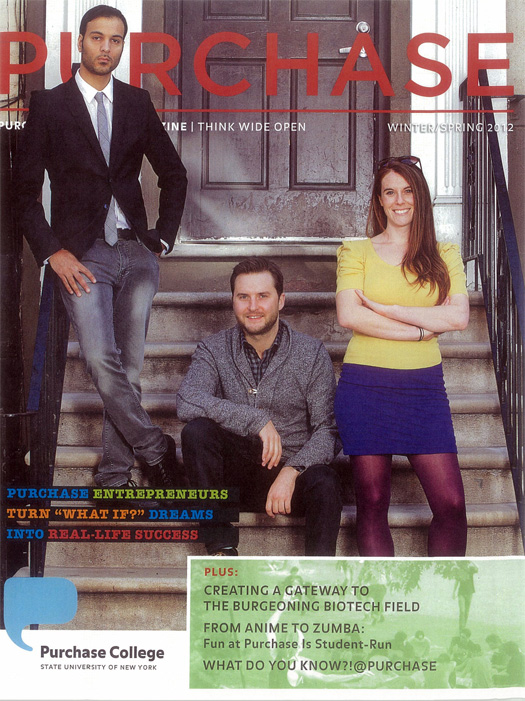
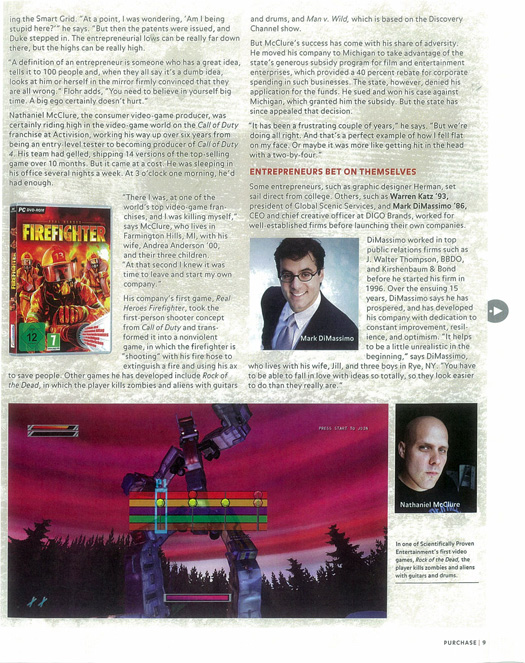
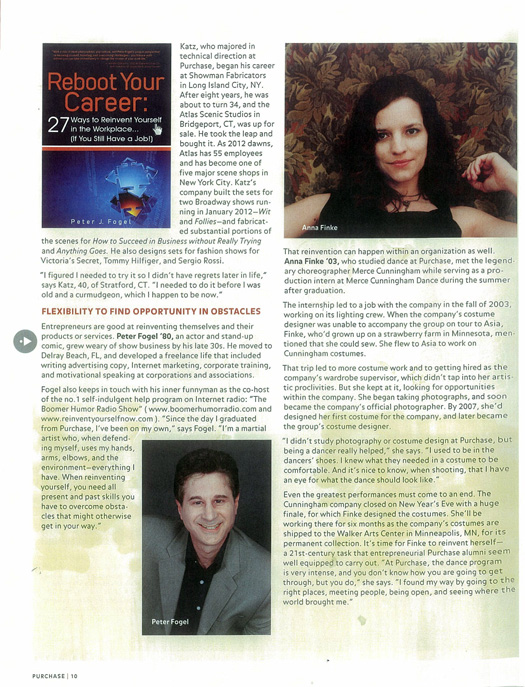

Mark DiMassimo was featured among other successful alumni entrepreneurs in a recent edition of the Purchase Magazine.



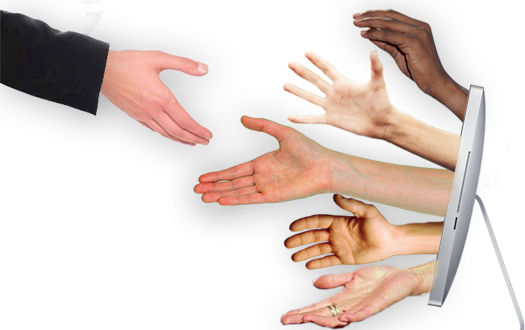
Learn how to turn your online presence into an analytic guide to making smart marketing choices in an article our colleague Jeff Pundyk wrote for CMO.com.
Jeff has spent his career creating digital content aimed at professional audiences, most recently at management consulting firm McKinsey & Co. Now he’s teamed with DIGO Brands – as you know we’re a full service agency with deep B2B roots — to help our clients use digital to connect with clients, prospects, and recruits in a richer, more sustainable way.
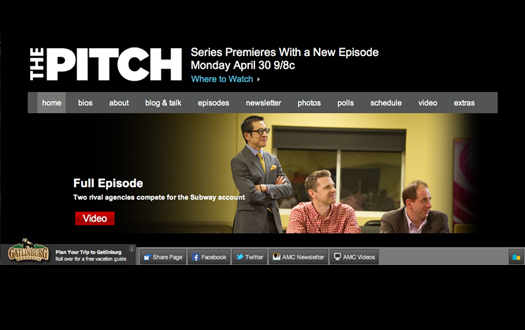
AMC’s new documentary series “The Pitch” features some terrific agencies this first season, including DIGO in Episode 7 scheduled to premier on Monday, June 4th at 9pm. “The Pitch” has spawned a lot of comments within the agency community about the agency pitch process itself. Negative comments. Nasty comments. Prideful, rebellious comments. So, we threw our comment into the mix, and republished it here.
I understand, truly, the feelings behind much of this criticism of the pitch process as many agencies experience it. The sort of rules “the industry” might create would only serve to protect and enrich a guild of established agencies, while it would raise the barriers to entry for entrepreneurs. DIGO is sixteen years old. I remember what it was like to start and it was hard enough. It doesn’t seem fair to upstarts or clients, especially entrepreneurial clients, to take the nearest thing to pure evolution and ossify it, even a little. We chose to participate in The Pitch for our own reasons, and have so far really enjoyed and benefited from the experience. We’ll see how we feel after our show airs on June 4th. We participate in relatively few formal pitches – maybe one or two per year – and yet have grown every year since 2003. When we do pitch, we first carefully vet the client and the process, and we set our own rules of engagement, before committing. Frankly $15K doesn’t make a difference in our world. Time is much more valuable than a few bucks. Our strategic thinking may be our most valuable product, but we give it freely and without concern every day. There isn’t some storeroom with a limited inventory of smart ideas. We are smart and strategic every day and if you’re having lunch with us, you get us. Your ability to implement our strategic ideas and your ability to execute on them successfully — well, that is typically the outcome of an uncommon partnership. It’s much more rare. If you’re the sort of person or organization that wants to try it without us, that’s ok. There are plenty that will pay a fair amount for that partnership. Beyond that, anyone who thinks the implementation of strategic ideas — the media, reporting, optimizations, creative, design, production, development — is a commodity, just hasn’t seen it done right.
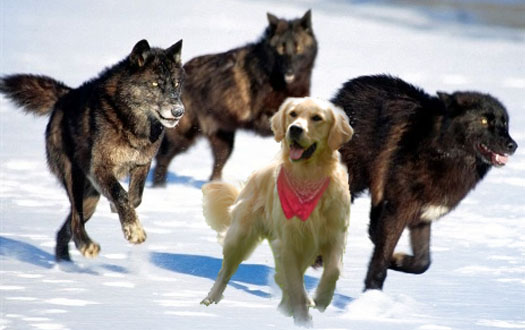
My first day working in an ad agency. Assistant Account Executive. BBDO Direct. 1986.
I hadn’t studied advertising. I was in love with ideas, and that was my window in to brands. All my searching, comparing and contrasting – without any plan at all – led to the day I started my advertising career, and from the first I was full of opinions, convictions, relevant knowledge and confidence.
I was far from finished. I could write, but I couldn’t spell. I knew greatness, but I didn’t know if I could produce it. On my first day, the client ignored my boss and quizzed me for a half hour on what his strategy should be. He seemed quite comfortable with my answers.
Until my boss took advantage of a pause in the conversation to say, “And then you’ll route this mechanical, right Mark?”
“Mechanical what?” I asked, ignorantly.

While people outside of the ad industry seem to enjoy AMC’s The Pitch, quite a few people inside the industry are understandably concerned about the inability of the television series to portray every single truth about ad agency life and every role that makes agencies go. At first, I thought this was just a lot of whining and posturing, but then I saw the show, and I have to agree! Here are my impressions:
Ok, so first off, where is the rest of the agency? Where are the thinkers? Where are the researchers, planners, developers and analytics people? Where are the producers and project managers?
You know the golden age of advertising is over when the entire industry is represented by one senior guy, who just seems desperate to win and keep clients, and one sort of all around creative guy who has to make this happen.
Surely, when people see this stuff on TV, it will spell the end of the industry, as the next generation of potential ad talent will be utterly turned off by this stuff.
Now I didn’t catch the beginning, and had to run out before the end, but it doesn’t take long to get what The Pitch is all about. It’s in black and white, which is sort of weird. There’s this senior guy, named Larry Tate. He basically sits in his big office and worries about winning and losing accounts and cares about nothing but money. Then, there’s this other guy named Darrin, who seems to do all the other jobs in the agency. He schmoozes the clients, comes up with the plans, has the ideas and draws them up in his study at home. He appears to live in the suburbs with an attractive witch, which is sort of a cliché’ as well. Seriously, people who see this show are not going to want to go into advertising. Within a decade, there will be no advertising people left!
Or at least this is what I thought until I was flipping around last night and I saw another episode of AMC’s The Pitch. OK, they apparently have different agencies every week, and this one was completely different from the first. I liked it a lot better. In this one there was a creative team. Their names were Michael and Elliot and they seemed like good guys, even if they were a bit overly worried. They also seemed to have a lot of fun at the office, throwing balls into little office hoops and stuff. Unfortunately, they worked for another silver-haired shark with a total lack of ethics. This guy was probably even worse that Larry Tate. Again, as much as I liked Michael and Elliot, I just can’t see how the next generation is going to take a look at Miles Drentell and decide – yeah, I want to go into advertising and work for a guy just like that!
So, in summary, I must concur with the many wise advertising people who have pointed out that AMC’s The Pitch will hasten the end of the advertising agency business model. Certainly, if we in our own youth had seen shows like these, we would have done what the intelligent and perceptive youth of today will surely do.
We would have skipped Madison Avenue and gone to Wall Street.
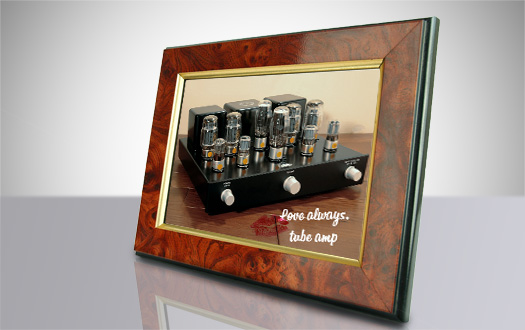
If you’re selling something, you should love everything about it. You should suck the juice out of the parts that others just throw away. You should devour the rind and make tea from the seeds.
Your job is not to seem the most sane, balanced and detached individual in the world. You should be on fire with this thing whatever it is. Hear Steve Jobs talk about Apple technology. Read what Howard Schultz has to say about coffee. You must be entrancing, and the only way to do this is to be yourself entranced
You can bring all the experience you have to the party, but leave your cynicism at the door. Cynicism is a failed attempt to prevent disappointment. It only prevents surprise. You need to see, project, inspire and confidently expect greatness.
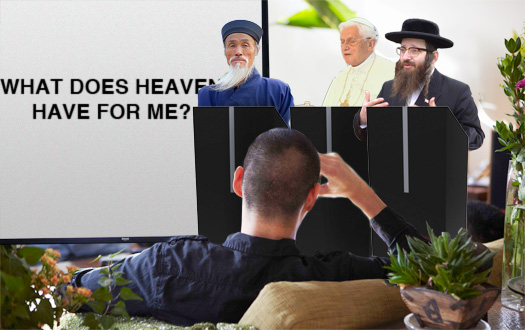
As a young teen, I invited missionaries from several major and minor religions to present their pitches to me in our family living room. I loved to see how they sold their beliefs, through brochures, and slide shows, and question and answer sessions. I loved to think about how their differing answers led to different values. Clearly, these missionaries had found games worth playing. To be frank, some seemed happier than others. Those who were preaching the imminent end of the world seemed to operate out of grim duty. Those who were selling eternal life with one’s perfected family seemed to feel they had a jewel to share, and beamed with enthusiasm
I compared and contrasted the pitches. I thought about their advantages and disadvantages. I thought about the way the religions had sprung up with answers to the questions left open by older religions, or with other competitive advantages. I began to see the process of historical development of religions as an evolutionary one, based on a competition of benefits. To me, religions were brands!
In college, I extended my exploration of competing belief systems to include philosophical, psychological and political systems.
At the heart of all of this turbulence was a relatively unchanging human being, but all the attempts to capture and codify all human aspirations and values seemed ultimately to fail, at least in the sense that they left open significant whitespace for competition to emerge.
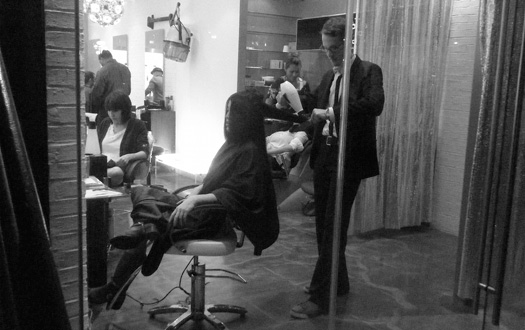
My earliest memories involve shops. My grandparent’s beauty salon. My paternal grandfather’s clothes factory. My father’s laboratory. Thomas Edison’s workshop, just a short walk from that beauty salon in Menlo Park, then and now part of Edison, New Jersey.
I remember the statuettes lined up – all the awards my Grandfather had won for his hairdressing – so that they could be noted or admired by patrons on the way down into the salon proper. My grandfather was the old master by then. The awards seemed dusty and old to me. Something about the salon seemed forlorn. Old ladies flying down from Canada to have their hair done by the one man in the world who they trusted to do it right
It was a proud show, but past it’s prime. Grampa hadn’t raised prices in twenty years. He ran a shop, not a business. But where he shone, where he was a true master was in the area of client service. He was famous for his soft touch, and while this technically referred to the gentle way his fingers controlled the hair and the scissors, never pulling or pinching, this appellation applied equally to his mastery of the entire relationship with his customers. It was beautiful to behold, and I had a front row seat. Sitting on a couple of phone books, my head under a hairdryer, I watched, and when I tired of the hot, dry, tornado, I listened too.
The beauty shop was perhaps the original social network. A wonderful place to learn about people. A place where things made sense, where you could care for people, touch people, and make them feel… better.
From the beginning, I loved the shop, the laboratory, the workplace. I envied people like my grandparents, couples or families who worked together for long hours and basically lived the better part of their lives together in the shop. To have a role to play, to feel useful, to feel part of something, to make one’s way in the world as part of something good or great or important… what could be better than this?
In truth, I always felt a bit awkward without work to do, without a useful role to play. At parties, I was in the band. I visited restaurants and bars much more often to work than as a patron. Work was an escape from the awkwardness of small talk. Work was tourism for me as well. I planted trees for billionaires. I worked the phones in a boiler room telemarketing set-up. I learned an immense amount as the sole Caucasian working in a Chinese restaurant.
A workplace provides all of this and more. A social purpose and a social life. Money and meaning. Colleagues and allies. Learning and tests. Challenges and overcoming. Accomplishments and recognition. Great games to play and perhaps master.
For as long as I can remember, I have been asking people a single question, “What was the best place you ever worked?” Typically, I follow this up with, “What made it the best?” “What did you learn from being there?” “Why do you think more places aren’t great?” “What could be done about that?”